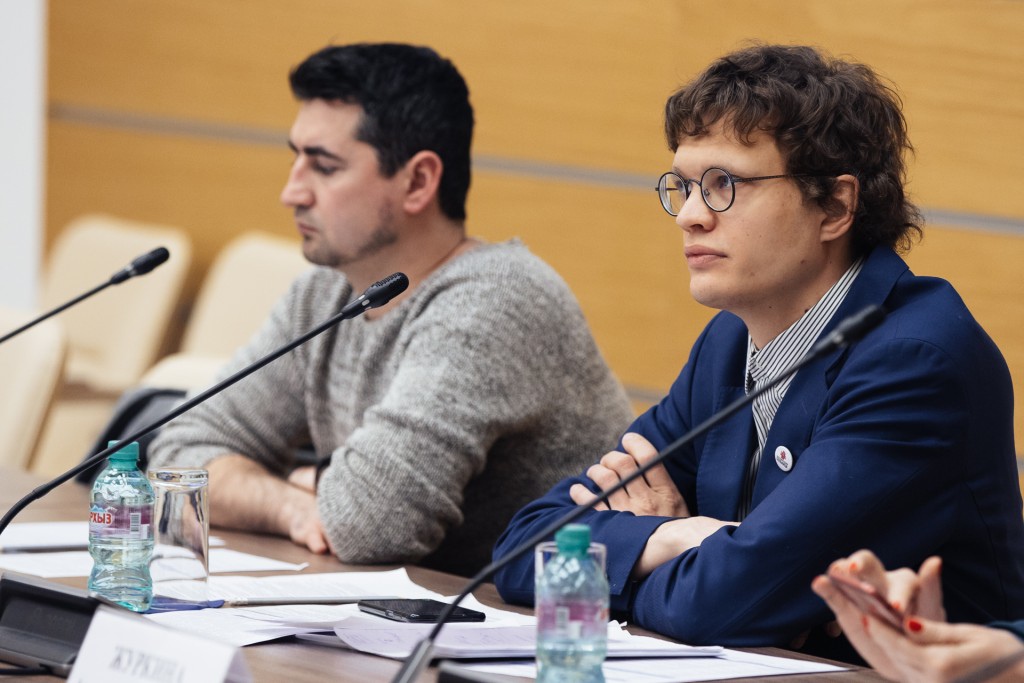Sergey Ievkov, founder of “Charitable Hospital”, talks about the need to help migrants’ kids for the future of Russia.
It started with my turns in a pediatric department of the observation maternity hospital in Saint Petersburg; this is where migrants and women with HIV end up giving birth, as well as any other person who cannot go to a common maternity hospital due to a lack of a special paper. Our patients included children of migrants. While in the maternity hospital, they received free medical care, including intensive care, if needed. But after discharge, they were lost.
At that time, the story of the baby Umarali Nazarov happened, and I was shocked that he had been left without any systematic vigilance.
Charitable Hospital
All these facts influenced my desire to create a kind of polyclinic for migrants’ children. I needed an indoor space and a license.
The project did not begin exactly as planned. I started to treat homeless people, as this did not require any room. In April 2018, the Charitable Hospital was founded. We have a warm bus which is a kind of mobile medical office like an ambulance; we have about 170 volunteers. We can do many things. Right now, we are in the process of registering in the Ministry of Justice, and we participate in the development of laws making street healthcare providers legal. We also plan to include HIV and tuberculosis diagnostics in the list of our services.
But I have not left the idea of helping kids of foreigners. In Saint Petersburg, the “Humanitarian Action” fund helps people with HIV. This foundation already had a medical license and enough room, but not enough doctors, while I, in contrary, had doctors but no room.
I suggested that volunteer medics from the Charitable Hospital would attend patients in the medical office of the foundation and help those outpatients who did not have access to healthcare. This category is wide: homeless people, migrants, their kids who do not have a right to go to a polyclinic. It was my idea to include a pediatrician who would examine migrants’ children. Since August 2020, this center has been working well, and now there are seven specialists who work for free. Four of them (an ophthalmologist, a dermatologist, an otorhinolaryngologist and a pediatrician) attend children. We also have a gynecologist for female migrants.
When the room issue had been solved, we contacted the PSP foundation, which then prepared leaflets about our center in 5 languages (Russian, Kyrgyz, Roman, Tadjik, and Uzbek). We plan to distribute them outdoors and to send information to public pediatric polyclinics, centers helping families and children, fostering departments, and other organizations who may attend to migrants with children. Currently, migrants’ children younger than 18 may come for a free medical examination at this private center.
Next generation
In Russia, foreigners are being born now. In 5 or 10 years, their parents will have a permanent residence or a citizenship. But nobody has thought that from the medical point of view these kids fell out of the system and were not vaccinated.
I am not inventing a bicycle here. There is no such example in Russia, but in the USA where the insurance system is multileveled, people without any insurance are being helped by charitable organizations. Fortunately, my ideas resonate with my colleagues’ and students’ hearts. We all understand that kids are kids, and they are not guilty of anything.
Such help should be of systematic nature. This is the correct approach. I pay taxes, as do migrants. The 41st article of the Constitution of the Russian Federation guarantees everyone “a right to health protection and medical care”. Nevertheless, for some reason an undocumented person cannot go to a polyclinic and be attended to by a medic, and a migrant child cannot visit a pediatrician. They say that the clinic cannot be losing money etc. But we can open a small center and be responsible for some health for migrant children.
Ekaterina Ivashenko
This article was prepared with the support of Oxfam in the Russian Federation
